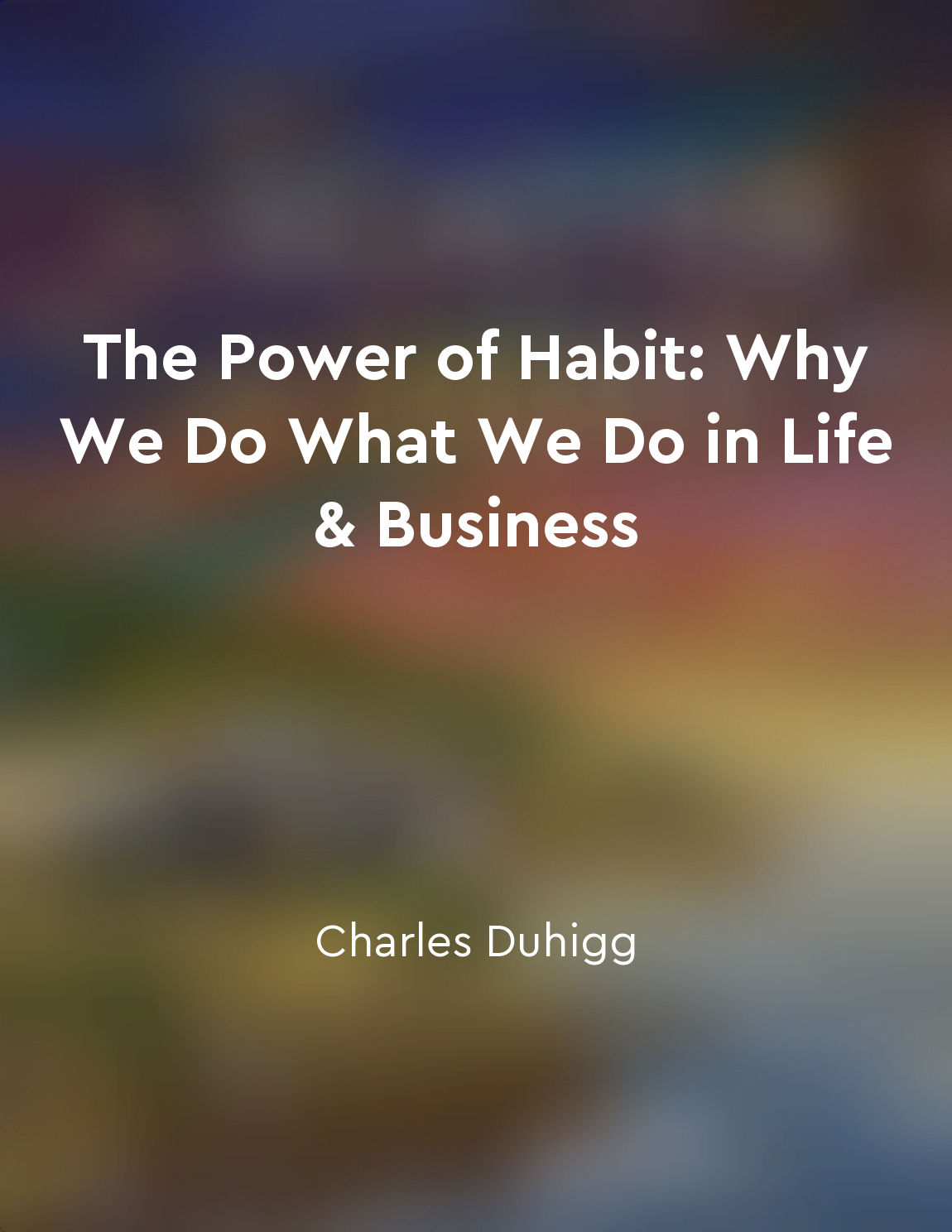Context matters in habit formation from "summary" of Tiny Habits by B. J. Fogg
To establish a new habit, you must consider the context in which that habit will take place. Your environment, your routine, and your emotional state all play a role in shaping your behavior. Context is like the soil in which a habit takes root and grows. If the soil is fertile, the habit will flourish. If the soil is barren, the habit will struggle to survive. When designing a new habit, think about where and when you will perform the behavior. Will you do it at home or at work? In the morning or in the evening? Alone or with others? The answers to these questions will help you create a context that supports your habit. For example, if you want to start exercising regularly, you might decide to do it first thing in the morning, before other responsibilities get in the way. This sets the stage for success by making it easier to follow through on your intention. In addition to considering the physical context of your habits, you should also pay attention to the emotional context. How do you feel when you engage in the behavior? Do you feel motivated and energized, or do you feel bored and uninspired? Your emotional state can have a profound impact on your ability to stick to a habit. If you associate positive emotions with the behavior, you are more likely to repeat it in the future. By taking the time to understand the role of context in habit formation, you can set yourself up for success. Instead of relying on willpower alone, you can create an environment that makes it easy to do the things you want to do. This approach is more sustainable in the long run because it leverages the power of your surroundings to support your goals. So, next time you want to establish a new habit, remember that context matters. By choosing the right soil for your seed, you can cultivate a habit that will stand the test of time.Similar Posts
Habits can have a ripple effect on other areas of our lives
Habits are like the roots of a tree, branching out and affecting every aspect of our lives. They have the power to shape our ro...
Build trust with others
Building trust with others is a fundamental principle for effective relationships. Trust is the foundation upon which all succe...
Keep a positive attitude in all situations
Maintaining a positive attitude in all situations is a fundamental principle that can greatly impact our lives. It is not about...

Practice selfcare
Self-care is a concept that is often overlooked but is crucial for maintaining focus and productivity. It involves taking care ...
Practicing kindness
Practicing kindness is a simple yet powerful concept that has the ability to transform our lives and the lives of those around ...

Embracing uncertainty can lead to habit transformation
One of the key ideas presented is that uncertainty can be a catalyst for transforming habits. When people are faced with unfami...
The Four Tendencies framework can help us better understand ourselves
Understanding ourselves is a fundamental aspect of living a happier, more fulfilled life. The Four Tendencies framework offers ...
Acceptance of setbacks is part of the process
Life is full of challenges, obstacles, and setbacks. No matter how hard we try to avoid them, setbacks are an inevitable part o...

Cultivating selflove
To cultivate self-love means to nourish and care for the most important relationship we will ever have – the one we have with o...

Tracking progress can enhance habit change efforts
Tracking progress is a powerful tool when it comes to changing habits. By monitoring our actions and behaviors, we can gain val...
